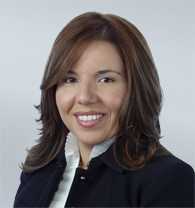
Today, the U.S. Department of State (“DOS”) issued the November 2014 Visa Bulletin. As was expected, the employment-based, second preference (EB2) category for people born in India retrogressed to February 15, 2005. Interestingly, the employment-based, third preference category moved forward across the board. EB3 India inched forward to November 22, 2003; EB3 China advanced to January 1, 2010; and EB3 for all other countries of chargeability moved to June 1, 2012.
As way of background, the Immigration and Nationality Act (“INA’) provides two separate worldwide limits on the number of people who may immigrate to the United States under family-based visas and employment-based visas. The worldwide limit for employment-based immigration is 140,000 immigrants per year, plus the difference (if any) between the maximum number of visas that may be issued under section 203(a) (relating to family-sponsored immigrants) during the previous fiscal year and the number of visas actually issued under that section during that year. Thus, the employment-based visas receive the “overflow,” if any, from the family-based classes.
Generally, there are five categories of employment-based green cards with various subcategories, known as “preference categories.” The U.S. government only allows a certain number of workers to immigrate each year in each preference category. The annual limits are as follows for each preference category:
First Preference Category of Priority Workers (“EB-1”): 28.6% of the worldwide employment-based preference level, plus any numbers not required for fourth and fifth preferences.
Second Preference Category of Members of the Professions Holding Advanced Degrees or Persons of Exceptional Ability (“EB-2”): 28.6% of the worldwide employment-based preference level, plus any numbers not required by first preference.
Third Preference Category of Skilled Workers, Professionals, and Other Workers (“EB-3”): 28.6% of the worldwide level, plus any numbers not required by first and second preferences, not more than 10,000 of which to “Other Workers”.
Fourth Preference Category of Certain Special Immigrants (“EB-4”): 7.1% of the worldwide level.
Fifth Preference Category of Employment Creation Immigrants (i.e. Investors)(“EB-5”): 7.1% of the worldwide level, not less than 3,000 of which reserved for investors in a targeted rural or high-unemployment area, and 3,000 set aside for investors in regional centers.
In addition, these preference categories are further broken down by country of origin, since the United States only allows a limited number of immigrants from each country to immigrate each year, within each preference category. Visas allocated to individuals from each country may not exceed 7% of the total number of visas made available in each preference category. Thus, workers from countries that are the source of significant numbers of immigrants each year face lengthy backlogs before they can be eligible to immigrant to the United States. This includes India, China, Mexico, and the Philippines. DOS and the U.S. Citizenship & Immigration Services (“USCIS”) have thus created a “priority date” system to manage this backlog. A priority date is assigned to each applicant, either at the time of filing a labor certification or filing an immigrant petition (as discussed further below). For backlogged countries of origin in each category, DOS provides a monthly list of the priority dates in each category of the applications that it and USCIS are currently processing, known as the “Visa Bulletin.” If a worker’s priority date is on or before the date posted in the visa bulletin that month, the worker can continue the process of obtaining a green card. If the worker’s priority date is after the date posted, the worker must wait for the priority date to become “current” (i.e., the posted date to show the date of filing or a later date) before continuing the green card process.
Shumaker, Loop & Kendrick, LLP provides an array of service options to assist you with your immigration needs. For more information, please contact Maria del Carmen Ramos at 813.227.2252 or mramos@slk-law.com.
